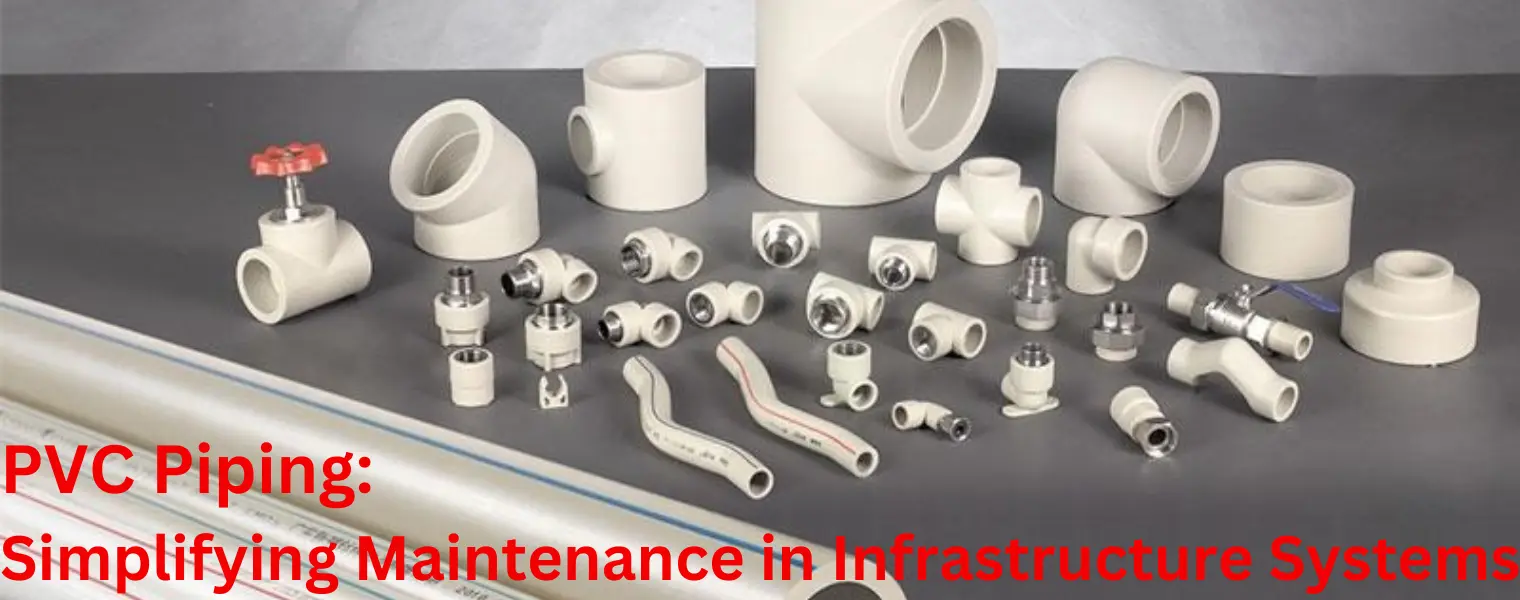
In the realm of infrastructure systems, the choice of materials plays a crucial role in ensuring longevity, cost-effectiveness, and ease of maintenance. PVC (polyvinyl chloride) piping has emerged as a versatile and reliable solution for a wide range of applications in water supply, drainage, and other infrastructure networks. In this blog, we'll explore the various benefits of PVC piping and how it simplifies maintenance in infrastructure systems.
PVC piping is renowned for its exceptional durability and longevity. Unlike traditional materials such as metal or concrete, PVC is resistant to corrosion, rust, and chemical degradation. This inherent resistance makes PVC pipes ideal for underground and above-ground installations, ensuring a longer lifespan and reduced need for frequent maintenance interventions.
One of the primary challenges in maintaining infrastructure systems is dealing with corrosion. Metal pipes are susceptible to rust, which can compromise structural integrity and lead to leaks. PVC piping, being corrosion-resistant, eliminates this concern. It can withstand exposure to various chemicals and aggressive substances commonly found in sewage and industrial effluents, making it a reliable choice in harsh environments.
PVC piping requires minimal maintenance compared to other materials. Its smooth interior surface reduces the likelihood of clogs and blockages, minimizing the need for frequent cleaning or repairs. This feature is particularly advantageous in wastewater systems, where blockages can lead to backups and disruptions.
The light weigh nature of PVC pipes not only reduces installation time but also lowers labour costs. In case of repairs or modifications, PVC pipes can be easily cut and joined using solvent cement or other simple techniques, allowing for quick and cost-effective interventions.
The overall cost of a piping system involves not only the material itself but also installation and maintenance expenses. PVC piping stands out as a cost-effective solution due to its low material cost, ease of installation, and reduced maintenance requirements. The long-term savings in repair and replacement costs further contribute to its economic viability.
Traditionally used for drainage and sewage systems, PVC pipes have evolved to meet the demands of pressurized water systems. Pressure-rated PVC pipes are designed to withstand higher water pressures, expanding their applications to include water supply lines and irrigation systems.
In certain environments, the growth of biological organisms within pipes can pose a significant challenge. PVC's smooth interior surface inhibits the formation of biofilm, preventing the growth of bacteria, algae, and fungi. This feature not only contributes to the cleanliness of water supply systems but also reduces the need for chemical treatments and maintenance to control biological growth.
PVC piping is now widely recognized as the preferred solution for infrastructure systems that prioritize durability, reliability, and easy maintenance. With its resistance to corrosion, minimal maintenance needs, straightforward installation process, and cost-effectiveness, PVC piping has become a compelling choice for applications such as water supply and drainage. As the demand for sustainable and efficient infrastructure solutions continues to rise, PVC piping stands out as a valuable asset, simplifying maintenance and ensuring the prolonged functionality of critical systems. Polyfab has maintained a consistent presence as a trusted supplier of PVC pipes and fittings to numerous industries in the region over an extended period. Feel free to reach out and engage with our experts for all your PVC pipes and fittings requirements.